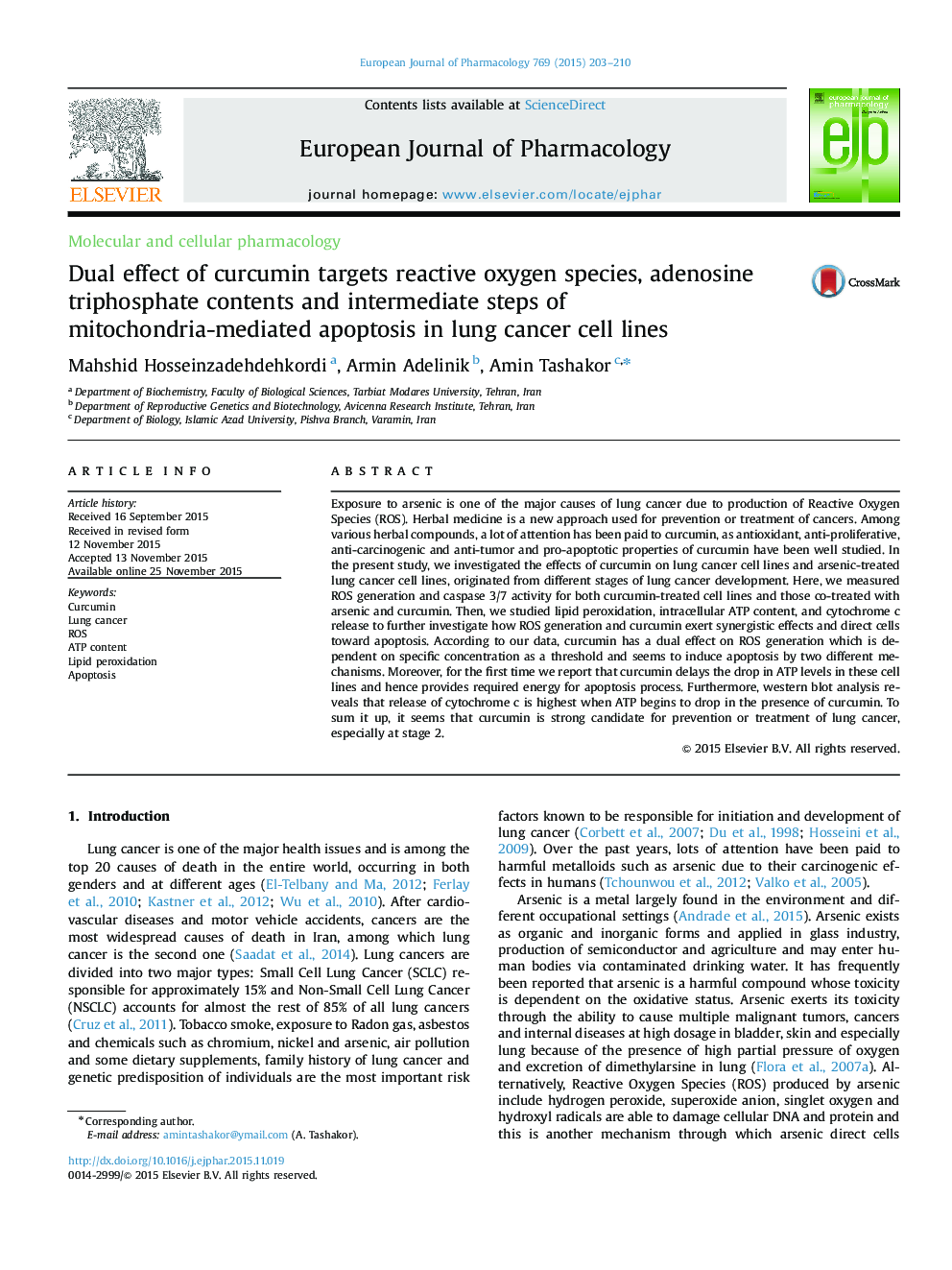| Article ID | Journal | Published Year | Pages | File Type |
|---|---|---|---|---|
| 2531273 | European Journal of Pharmacology | 2015 | 8 Pages |
Exposure to arsenic is one of the major causes of lung cancer due to production of Reactive Oxygen Species (ROS). Herbal medicine is a new approach used for prevention or treatment of cancers. Among various herbal compounds, a lot of attention has been paid to curcumin, as antioxidant, anti-proliferative, anti-carcinogenic and anti-tumor and pro-apoptotic properties of curcumin have been well studied. In the present study, we investigated the effects of curcumin on lung cancer cell lines and arsenic-treated lung cancer cell lines, originated from different stages of lung cancer development. Here, we measured ROS generation and caspase 3/7 activity for both curcumin-treated cell lines and those co-treated with arsenic and curcumin. Then, we studied lipid peroxidation, intracellular ATP content, and cytochrome c release to further investigate how ROS generation and curcumin exert synergistic effects and direct cells toward apoptosis. According to our data, curcumin has a dual effect on ROS generation which is dependent on specific concentration as a threshold and seems to induce apoptosis by two different mechanisms. Moreover, for the first time we report that curcumin delays the drop in ATP levels in these cell lines and hence provides required energy for apoptosis process. Furthermore, western blot analysis reveals that release of cytochrome c is highest when ATP begins to drop in the presence of curcumin. To sum it up, it seems that curcumin is strong candidate for prevention or treatment of lung cancer, especially at stage 2.
